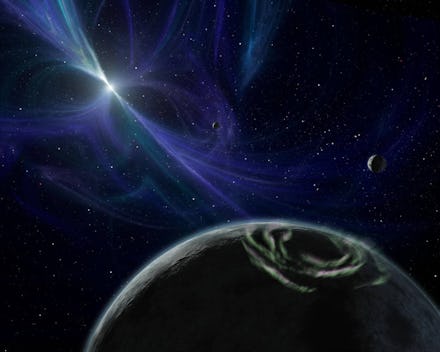No, a Planet Isn't Crashing Into Earth, and These Scientists Will Tell You Why

Another day, another wacky end-of-the-world conspiracy theory making the rounds. The sad part is that this one started with a discovery grounded in science.
In January, two well-respected scientists created a model that suggested a ninth planet might be orbiting on the outer edge of our solar system. Since then, there's been a lot more scientific evidence that Planet Nine really exists. Now scientists are trying to track down and get direct observational evidence.
However, when the news first came out, a handful of conspiracy theorists immediately leaped to the conclusion that Planet Nine must be "Planet X," also known as "Nibiru," or the white dwarf called "Nemesis" — objects featured in far-fetched theories about the Earth's destruction. (Sorry for the Wikipedia links — there aren't any credible sites to link to here.)
In short, conspiracy theorists believe that Planet X/Nibiru/Nemesis is going to barrel into Earth sometime in the early 21st century in a cataclysmic crash and destroy us all.
To be clear, astronomers and planetary scientists have completely rejected these ideas, insisting there is no scientific evidence to back them up.
But for some reason, the New York Post ran with the idea this week. According to the Post's April 7 video, "scientists" think the planet could crash into Earth sometime this month.
Well, real scientists took to Twitter to call bullshit.
Mike Brown, the astronomer who worked on the Planet Nine paper that came out in January, set the record straight:
His co-author, Konstantin Batygin, laughed the whole thing off:
Other scientists weighed in too:
Even some science writers stepped in:
Great job on perpetuating pseudoscience, New York Post. Go back to doing what you do best: demonizing the Muslim community and humiliating the homeless.